Mentorship: Solving gaps in care with shared wisdom
When Meredith Schanda moved from an academic medical center in Boston to a small clinic in rural southeastern Georgia, the change came as quite a shock. Working as a family nurse practitioner, she went from having ready access to a multitude of specialists to relying on her own experiences and expertise to treat her patients.
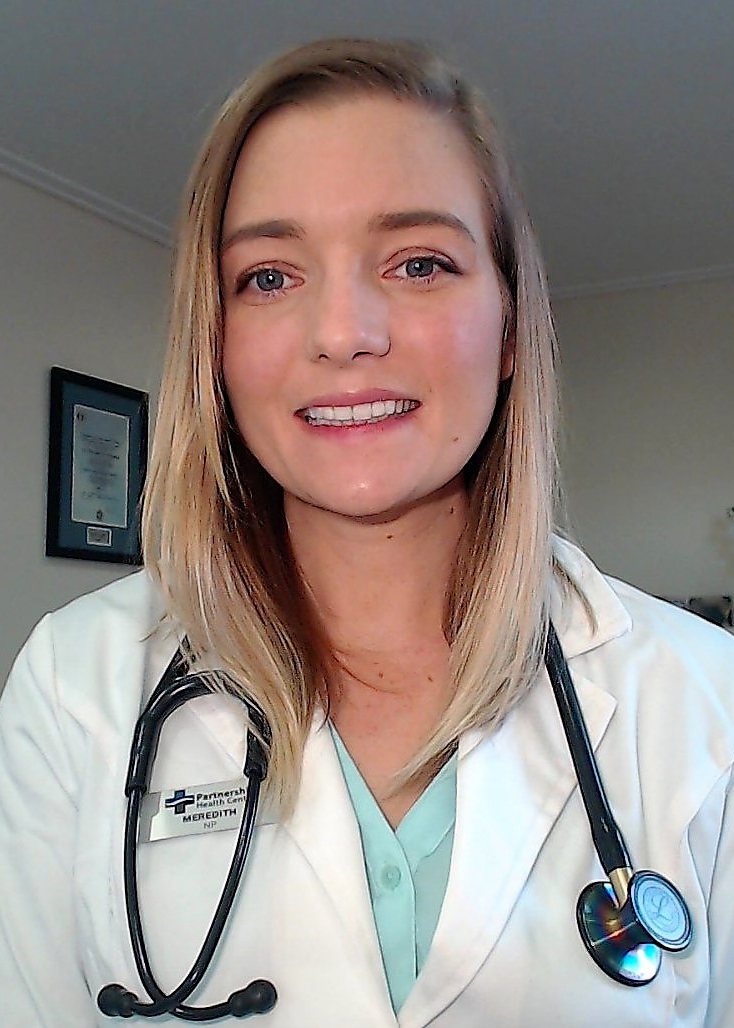 Meredith SchandaTo fill resource gaps, providers at Schanda’s clinic reached out to others who had been in similar situations. One partnering organization was MAVEN Project, a nonprofit dedicated to connecting providers at safety net clinics with expert physician volunteers for medical advice, mentorship, and education. Schanda fell in love with the project’s mission, and today she is their chief operating officer.
Meredith SchandaTo fill resource gaps, providers at Schanda’s clinic reached out to others who had been in similar situations. One partnering organization was MAVEN Project, a nonprofit dedicated to connecting providers at safety net clinics with expert physician volunteers for medical advice, mentorship, and education. Schanda fell in love with the project’s mission, and today she is their chief operating officer.
“In rural health care we’re seeing a lot of unique challenges,” Schanda says. “I think the most prominent one is access to care. Linking a frontline rural health care provider to a mentor to help empower that provider with the skills and knowledge they need to manage complex and often acute patient conditions can save that patient from having to wait months to establish care with a specialist or drive hours away from home.”
With nearly 200 volunteers from across the country representing more than 60 specialties, MAVEN Project leverages telehealth technology to reach health care professionals in even the most remote communities. The organization currently partners with 395 sites in 25 states and Washington, D.C., saving patients and providers millions by eliminating the need for external referrals and keeping services close to home.
"We give medical providers the knowledge they need to practice at the top of their license and provide the best care possible for their patients." – Meredith Schanda |
Quite simply, the straightforward act of connecting one health care provider with another helps provide timely, high-quality care to patients – and it greatly impacts provider well-being as well.
Complementary and comprehensive
MAVEN Project was founded in 2014 by San Francisco-based OB-GYN Laurie Green, who foresaw new challenges related to access following the passage of the Affordable Care Act. With millions of people seeing a doctor for the first time, Green knew health care providers would be overextended, so she started rounding up retired physicians and linking them to potential mentees. Over the last decade, MAVEN Project has expanded and refined their offerings, enabling them to match provider needs with specific volunteer expertise.
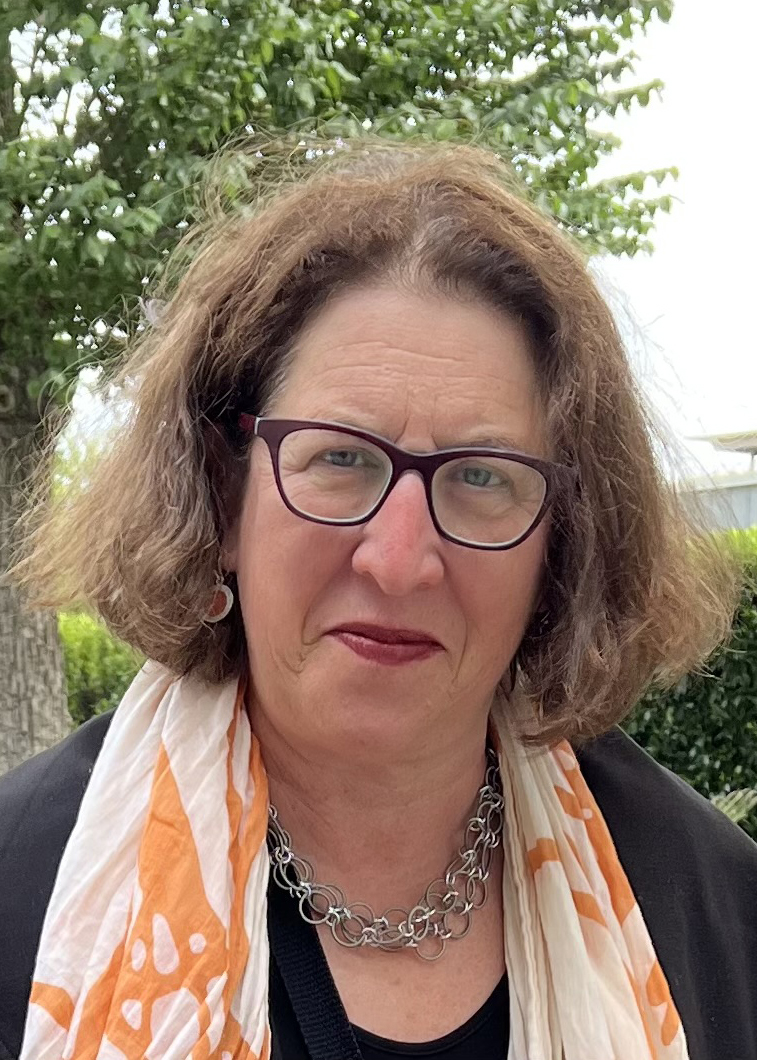 Jeanne Reisman“We do peer-to-peer consulting, one-on-one mentoring, and continuing medical education,” Schanda says. “We’ve designed our services to be complementary and comprehensive. We aim to reduce costs, improve care satisfaction and patient outcomes, advance health equity, and remove barriers to care locally. We give medical providers the knowledge they need to practice at the top of their license and provide the best care possible for their patients.”
Jeanne Reisman“We do peer-to-peer consulting, one-on-one mentoring, and continuing medical education,” Schanda says. “We’ve designed our services to be complementary and comprehensive. We aim to reduce costs, improve care satisfaction and patient outcomes, advance health equity, and remove barriers to care locally. We give medical providers the knowledge they need to practice at the top of their license and provide the best care possible for their patients.”
In recent years, physician burnout and provider shortages have become mounting concerns in rural areas, and MAVEN Project works to alleviate these obstacles as well. According to Schanda, while well-known challenges such as stress, long hours, and administrative burdens are factors in physician burnout, the top reason cited in one recent study was a lack of sufficient resources for patients.
“MAVEN Project gives clinicians the tools they need to treat their patients and feel like they have the support they need,” Schanda says. “This can help with recruitment and retention in rural clinics as well. Our physician volunteers are able to work locally in the areas where they live, but by using MAVEN Project and leveraging telehealth, they’re able to catalyze their positive impact and assist clinics in rural areas.”
"I’m proud of the fact that I’ve been able to support clinicians at FQHCs." – Jeanne Reisman |
MAVEN Project’s volunteer mentors – most of whom are retired physicians with an average 35 years of experience – also find meaning and inspiration in their work. For Jeanne Reisman, who worked as a primary care physician for 32 years and has volunteered with the project since her retirement in 2018, serving as a mentor has been enormously rewarding and allowed her to continue sharing her passion caring for underserved populations.
“I’m proud of the fact that I’ve been able to support clinicians at FQHCs,” she says. “One of them said the greatest benefit was the support they received from someone who understands how deeply challenging it is to provide quality care in rural America. They felt like they had a sounding board. Being able to talk about different cases has been really helpful for them.”
‘Use the skills you’ve got’
Longtime NRHA member and former Rural and Minority Health Research Center director Jan Probst has been on the giving and receiving ends of mentorship in an academic environment. In her more than two decades as a professor and researcher at the University of South Carolina, she provided both formal and informal support to many graduate and post-graduate students. During that time she’s seen the power of mentorship in action.
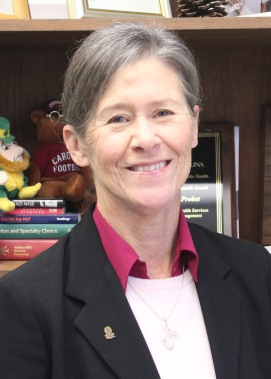 Jan ProbstIn particular, Probst’s career has focused on helping rural minority populations, for whom struggles such as chronic conditions, poverty, and lack of access to care are often exacerbated. To do this, she worked to recruit students from minoritized groups to staff the center, and she reminded her mentees to focus on the science behind everything from policy to funding proposals.
Jan ProbstIn particular, Probst’s career has focused on helping rural minority populations, for whom struggles such as chronic conditions, poverty, and lack of access to care are often exacerbated. To do this, she worked to recruit students from minoritized groups to staff the center, and she reminded her mentees to focus on the science behind everything from policy to funding proposals.
“You’ve got to use the skills you’ve got – I’m not somebody who can go out and organize people because I’m an introvert and I don’t like talking to strangers, but I can run numbers and make those numbers sing,” Probst says. “If you’re a rural health researcher and educator, you can share your concerns, and if you’re lucky enough to find people who like it, you can help them do it too.”
Over the years, a number of prominent rural health researchers have emerged from the University of South Carolina, including 2024 NRHA President Kevin Bennett, NRHA Rural Health Fellows alumnus Joni Nelson, and longtime NRHA member Amy Brock Martin. Probst has also seen some of her former students go on to work at the National Institutes of Health, where they are now in a position to influence rural health policy.
"If you can create a workplace where everybody is helping everybody, it becomes a team environment." – Jan Probst |
When considering her approach to mentoring future rural health leaders, Probst says she tried to recreate the workplace culture her early mentors established for her. The crux of this supportive environment was teamwork – and having fun, of course.
“If you can create a workplace where everybody is helping everybody, it becomes a team environment,” Probst says. “There are relatively few rural health professionals and relatively few schools that do this research. If you are senior in a field, it’s important to be willing to provide guidance. It will pay off for the discipline as a whole – it might not pay off for you immediately, but in the long run it will help everybody.”
Bridging gaps in expertise
When it comes to safeguarding the future of rural health, NRHA’s Center for Rural Health Leadership has also taken a proactive approach to ensuring the next generation is ready to overcome the obstacles they face. The center currently offers seven certification programs for rural hospital executives and leaders, with mentorship being one of the programs’ key tenets.
Cascade (Idaho) Medical Center CFO David Donnahoo signed up for NRHA’s Rural Hospital CEO Certification Program with the future in mind. With Baby Boomers retiring and pandemic-fueled staffing shortages leaving rural hospitals shorthanded, many facilities are staring down a future with no one ready to step into leadership roles. When it’s time, Donnahoo wants to be ready to take the reins.
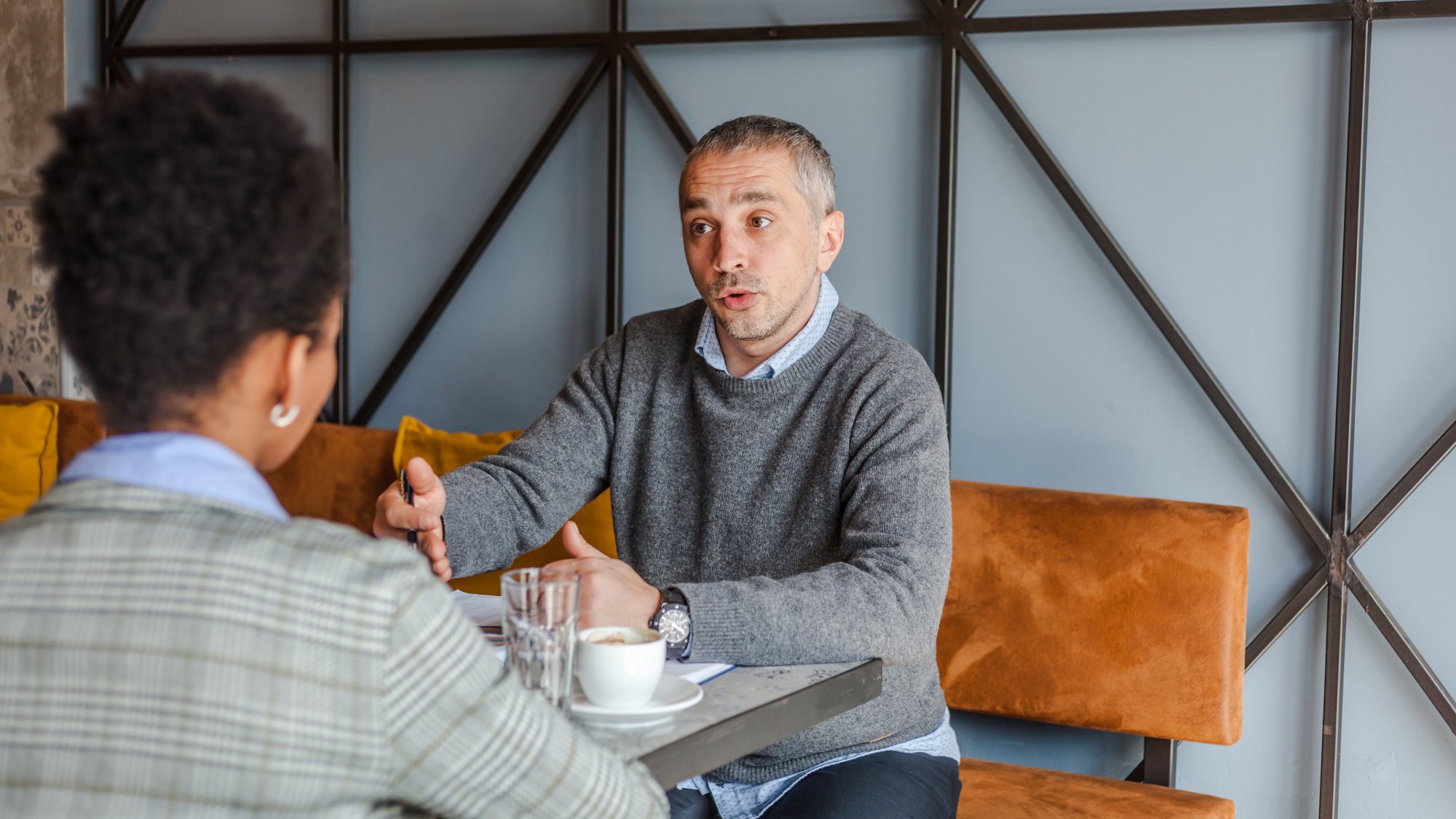 |
“I think it’s so valuable and it really is strategic to have programs like this in place,” he says. “Without it, I think rural health care is going to be in a lot of trouble in the next few years as administrators retire. Unless people are mentored and trained, they are going to struggle to fill those shoes.”
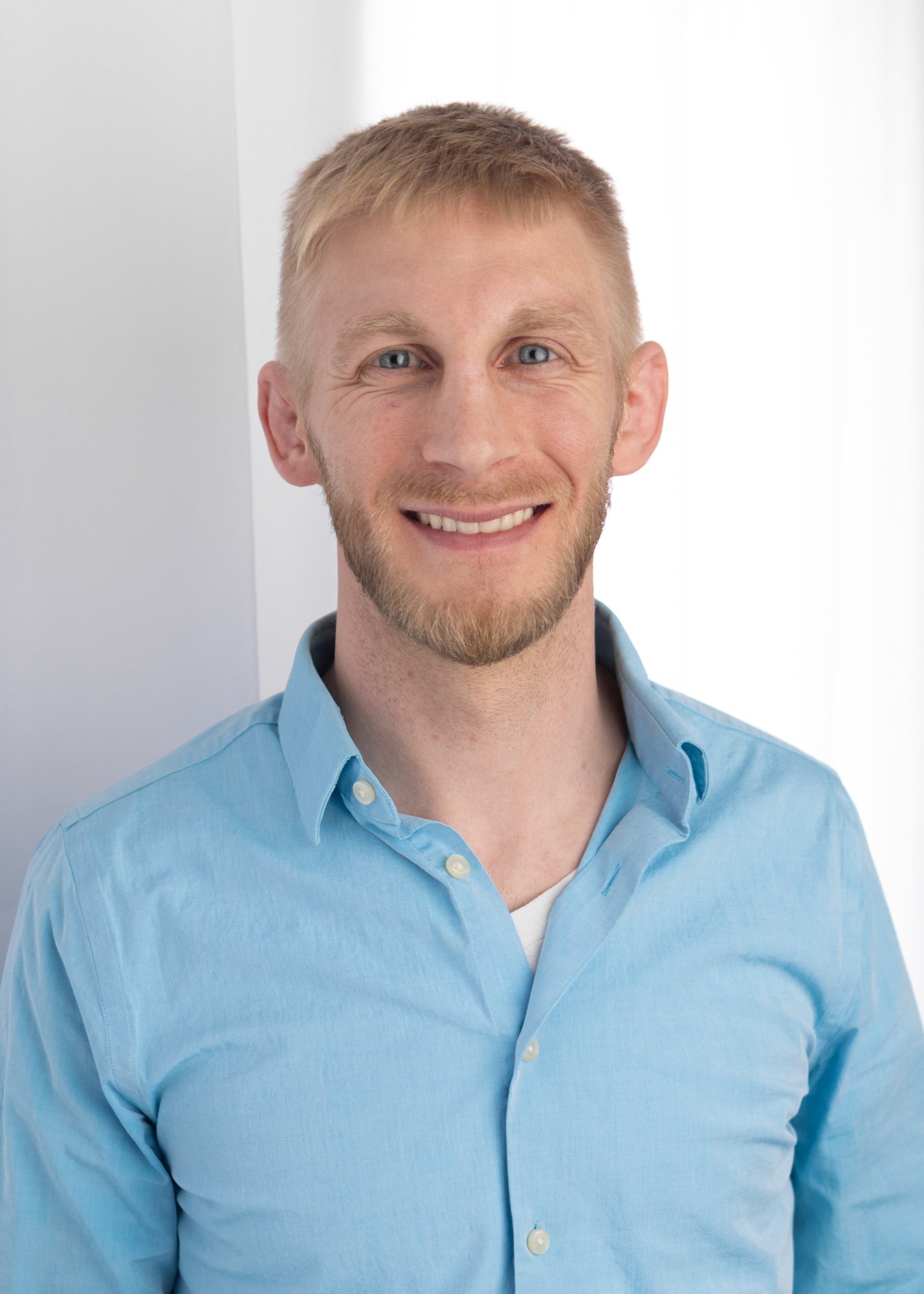 Corey UlmerPrior to participating in the program, Donnahoo received professional guidance from his first boss in the health care field, who helped him define his career path as he transitioned from a retail background. As he prepares to move on to another CFO position at a hospital in Florida, Donnahoo is sharing what he has learned with others through NRHA’s programs.
Corey UlmerPrior to participating in the program, Donnahoo received professional guidance from his first boss in the health care field, who helped him define his career path as he transitioned from a retail background. As he prepares to move on to another CFO position at a hospital in Florida, Donnahoo is sharing what he has learned with others through NRHA’s programs.
“I’m mentoring a hospital CEO in Washington with a clinical background and mine is in finance, so we can share expertise,” he says. “People coming up into the CEO role in health care seem to have either financial or clinical experience. NRHA’s program works to partner people with different backgrounds to bridge that gap.”
Ashley (N.D.) Medical Center CFO Corey Ulmer also found NRHA’s Rural Hospital CFO Certification Program helpful when his facility’s previous CFO was preparing for retirement. In addition to receiving guidance from his predecessor on accounting, leadership, and regulations, Ulmer found valuable networks and resources through NRHA’s programs.
“It’s very important to have a network and to be able to bounce information off each other,” he says. “Oftentimes you get stuck on something. The NRHA program introduced me to a lot of people in the same role I am and gave us many contacts to ask questions. I think it’s crucial.”
"It’s very important to have a network and to be able to bounce information off each other." – Corey Ulmer |
Strong leadership helps ensure the survival of Ulmer’s facility, which employs approximately 120 people in the town of 700 and also has a clinic and a nursing home. In a town where the closest Walmart is 90 minutes away, Ulmer knows the facility’s value goes far beyond access to care.
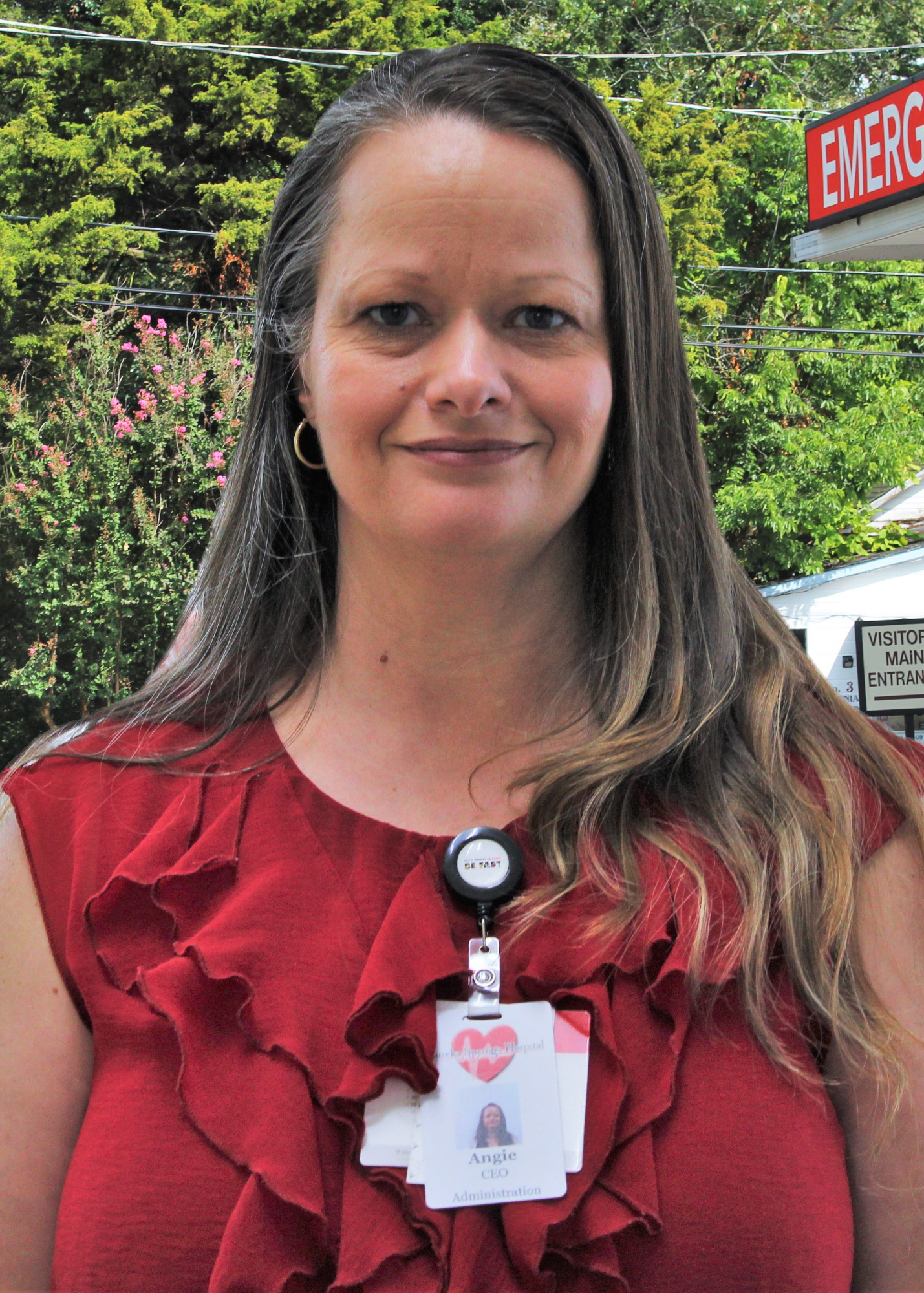 Angie Shaw“This facility is a staple in the community,” he says. “Just having these services here is huge. This community holds a special place in my heart, so being a part of something that’s so important to my hometown means a lot to me.”
Angie Shaw“This facility is a staple in the community,” he says. “Just having these services here is huge. This community holds a special place in my heart, so being a part of something that’s so important to my hometown means a lot to me.”
Contributing to the well-being of her rural community is also important to Angie Shaw, Eureka Springs (Ark.) Hospital CEO. A nurse by trade, Shaw has worked at the hospital for 17 years and stepped into her current leadership position in 2020. Through NRHA’s Rural Hospital CEO Certification Program, Shaw was connected with a mentor from a similar facility who could walk her through difficult situations and let her know she’s not alone.
But for Shaw, the true value of mentorship is helping ensure lifesaving care remains available and accessible for the people she loves.
“I love the camaraderie we have in a smaller facility,” Shaw says. “It’s kind of like a big family. I’ve provided care for grandparents, their children, their grandchildren, their great grandchildren. Rural health is definitely a passion, and I want to make sure we’re always there when they need us most.”
NRHA’s Rural Hospital Certification Programs offer you the opportunity to engage, network, learn, and grow with rural-specific education developed by rural hospital executives for rural hospital executives.
Participants in these programs will be empowered to lead rural hospitals to thrive and improve quality of life by effectively leading communities to create a culture of wellness.
